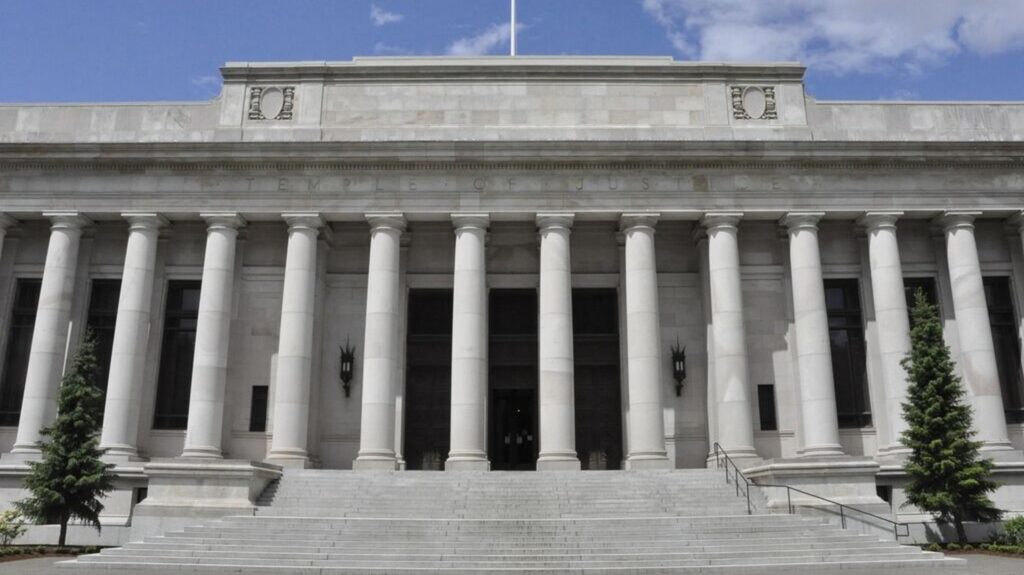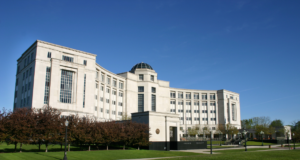Washington Supreme Court declines to redraw political maps, accepts bipartisan redistricting framework
4 min read
The Washington State Supreme Court ended the uncertainty over redistricting Friday by accepting the framework of the bipartisan redistricting commission, which took the vote on the new legislative maps just after the statutory deadline had passed.
A televised joke might have telegraphed the court’s decision.
As it was becoming clear that Washington state’s bipartisan redistricting commission would have a hard time making its statutory deadline, state Supreme Court Chief Justice Steven Gonzalez quipped on TVW that voters wouldn’t want him with Crayons drawing redistricting maps.
The decision also showed a state Supreme Court that was, on this issue, reluctant to enter the partisan fray.
The commission is bipartisan by design, with two Republican and two Democratic commissioners and a nonpartisan chair. The Washington Observer reported that one of those Democratic commissioners did not act in good faith.
“Commissioner Brady Walkinshaw, acting on behalf of Senate leadership, repeatedly gummed up the end-game negotiations with last-minute demands and gambits,” the story stated. “That led to a vote on a tentative plan just before midnight on Nov. 15. Crucially, the vote to submit the plan to the Legislature happened a few minutes later, early on Nov. 16, past the deadline in state law.”
The Washington Observer also explained how the Supreme Court could redraw the maps to help Democratic candidates.
At the congressional level, for instance, “A relatively small amount of scrambling could make the 8th [congressional district] completely safe for Democrats and the 3rd much harder for [Republican Congresswoman Jaime] Herrera Beutler to hold,” the political newsletter reported. “That could push Democrats’ margins from a shaky 7-3 to a solid 8-2.”
Critics pointed out that five of the nine justices had been appointed by Democratic Gov. Jay Inslee, which would have opened their attempts to redraw the political map up to charges of Supreme Court politicking.
April Sims, the one Democratic redistricting commissioner who has not faced accusations of obstruction, insisted in a press conference that “these maps are legitimate, and that any statements to suggest otherwise are a calculated attempt to undermine our democratic process.”
“Planting seeds of doubt about our maps deteriorates trust in our democratic institutions and the norms that we as a country hold so dear, and we must vigilantly guard against this,” she warned.
Northwest Progressive Institute (NPI) Executive Director Andrew Villeneuve was disappointed by the high court’s decision.
“NPI is disappointed by the Washington State Supreme Court’s Dec. 3 order sanctioning the work product of the 2021 Redistricting Commission,” he said in a press release. “It was clear to anyone who watched the Commission’s chaotic, disorganized meeting on Nov. 15 that it did not finish its work by the deadline. Commissioners took a vote on maps that no one had seen, not even themselves, and then promptly congratulated themselves on having done a great job before concluding the following morning that they hadn’t finished on time.”
He went on to say, “A framework is not a set of maps. An informal agreement is not a set of maps. There was no opportunity for public comment or review before votes were taken on November 15th to adopt the cartographic equivalent of vaporware. The Supreme Court had an opportunity here to rectify this wrong, and make a good ten year decision for our state, and sadly, it has declined to do so. The justices may soon be asked to get involved again anyway in the event legal challenges are filed to these maps.”
Villeneuve urged the Washington State Legislature to take action next year.
“It is now even more imperative that the Legislature act on redistricting reform in the 2022 session,” he said. “The utter disregard we saw for Washington’s public meeting laws simply cannot happen again. In the coming session, NPI will be asking legislators to adopt new state statutes to explicitly require the Redistricting Commission to present legislative and congressional maps for public review and comment at least seven days before voting on adoption.”
Caleb Heimlich, chair of the Washington State Republican Party, was satisfied with the new maps.
“We are relieved that the Supreme Court accepted the compromise maps and the redistricting process is complete and we can focus on winning in 2022 and beyond,” he said in an email to The Center Square. “A big thank you to Republican Commissioners [Paul] Graves and [Joe] Fain for working hard to ensure we had competitive districts. Under these approved maps, we have a path to the majority in the State Legislature and the opportunity to flip congressional seats.”
This article was originally posted on Washington Supreme Court declines to redraw political maps, accepts bipartisan redistricting framework







